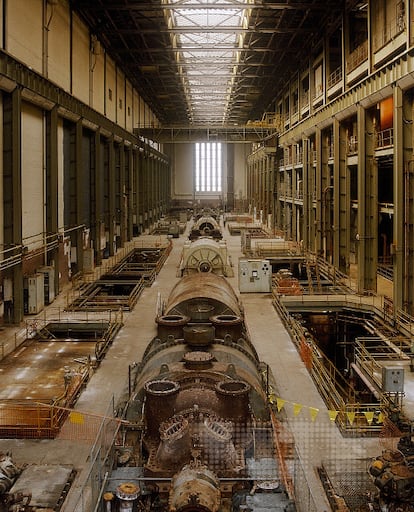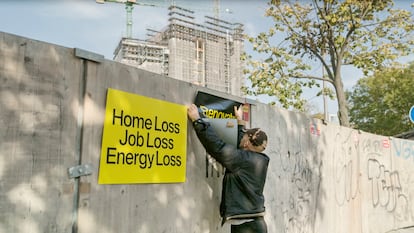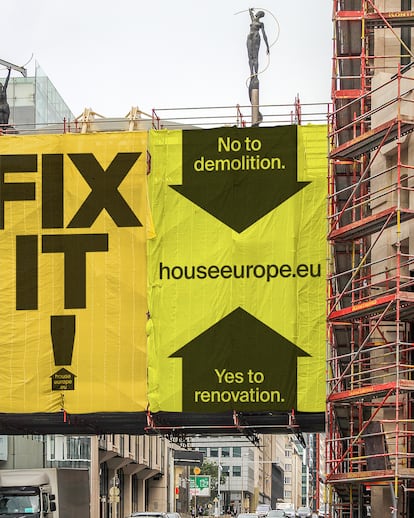The scientist Alina Kolar (1990) is the daughter of Slovenian immigrants settled in Graz (Austria). Her father had an outstanding role in the union of workers of her company and she inherited that belief in collective support and claim. The Austrian Olaf Grawert (1987) is an architect and urbanist in Berlin. Together they launched Houseeurope!, A non -profit organization that functions as a policy laboratory to protect the environment built in Europe.
Starting from the European Citizen Initiative (ICE) – a tool for participatory democracy that, from a million signatures, allows citizens to have a direct voice in resolving critical issues and in the creation of new EU laws – they created Houseeurope! to mobilize against unnecessary and impoverish demolition that characterizes the European urban landscape. It is not, on this occasion, to protect artistic buildings, it is not to demolish what is still alive, healthy and is useful as part of the economic, social and environmental balance of the continent.
Thus, this year, Houseeurope! He has received the Obel award, an award that defends the potential of the architecture to act, precisely, as an agent of change. In previous editions, Obel had recognized the work of Japanese Junya Ishigami, of the German Anne Heringer, or, last year, of the Mexican collective C733, which signed 36 public works projects in less than two years.
On this occasion, the jury does not reward a building, but a resistance: the warning of the social, environmental, cultural and economic consequences of speculation in architectural projects. “Prioritizing economic benefit over people and the planet is directly related to the increase in housing prices, the increase in CO2 emissions, the progressive exhaustion of natural resources, the loss of local employment and the erosion of cultural heritage,” they explain from Houseeurope!
The building sector is the largest issuer of CO₂ in Europe (38 % of emissions) and the construction industry is the main waste generator (36 %), according to the EU. The enormous environmental impact of the sector forces to question its operation. That is what the Houseeurope collective! proposes. As? Mobilizing citizen support towards a paradigm shift that recognizes the potential of renewal.

Neither obsolescence nor catastrophes are behind the demolition of European buildings (one per minute according to House Europe!) It is financial speculation that leads to demolish so many useful and healthy buildings. The result is catastrophic: Increase of rentals, unnecessary emissions of CO2, cities perpetually in works …
Therefore, Houseeurope! It seeks to approve new European laws that facilitate the renewal and transformation of buildings, making them more accessible, affordable and socially fair. To try to achieve it, he needs a million signatures in all member states before January 31, 2026, which allow him to promote a change of values in Parliament. (Sign the request here).

“Houseeurope! Questions the culture of demolition and advocates a legislative change. Working with existing buildings should not only be a design election, it is a social and environmental necessity,” said Nathalie de Vries, of the Dutch study MVRDV who has been the president of this year’s jury.
Beyond the Houseeurope campaign! The prize has supported its decision in the renewal, the before and after, of significant European buildings such as the transformation of a power plant into the Tate Modern in London, signed by Herzog & de Meuron; The isolation and improvement of the 530 -housing building signed by Lacaton/Vassal in Bordeaux or the renewal of the Belgian property The Cosmopolitan, designed by Bogdan & Vanbroeck in Brussels.

